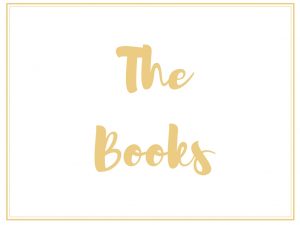Low-Effort Ways To Improve Your Writing In Less Than An Hour A Day

I’m a full-time freelance writer, and have been for several years now. I’m widely published, mostly online but occasionally off. I’ve written ebooks (and sold thousands of them). I’ve written four-figure articles, and make a modest but consistent amount every month from affiliate marketing.
But I’m still improving, every day. And because my stupid life is crazy busy, I’m doing it as efficiently as possible.
Right now, I’m committed to finding one hour a day. Not to write, research, or edit (I do that for up to eight hours a day, in one form or another), but to do other things that will improve my writing over time. Here’s what they are.
Strategic reading
You’re probably sick to death of people telling you how important it is to read a lot if you want to write well. And it’s probably advice you don’t need. It’s rare to meet a writer who doesn’t read, so the advice is redundant for most of us. Having said that, let’s just get specific for a minute. To improve your writing, you should be reading:
- Good books about writing
I’ve listed 30 of my favourite books about writing and publishing to make it easy for you. Browse the creative writing section of your local bookstore and library for more.
- What you want to write
Reading “how to” writing books is beneficial, but ultimately it’s no good reading “How to write a great work of literature” unless you also read a lot of great works of literature. Read a lot of what you write or would like to write, whether that’s historical novels or women’s magazine articles.
- Writing Blogs
Find some really good ones. I like ProBlogger and Make A Living Writing. They’ve both been around for years and are run by people who actually make a lot of money writing and blogging. (Beware of people who offer advice based on their very recent success — it may be based at least partially on luck, and their tips may not stand the test of time).
When you find blogs you love, sign up for their newsletters. Save their best posts (the ones that are really useful to you). Curate your own bank of information that’s relevant to your specific writing career goals.
- Other inspiring content
Read biographies, true stories, history, and news stories. Ideas for articles, short stories, novels and non-fiction books are in everything you read. And remember not all stories are written down. Don’t believe the snobs you tell you that time watching TV is time wasted. Just because a story is told on a screen doesn’t mean it can’t inspire a new article or story idea.
Take a course
Taking a writing course or workshop, either online or in the real world, can really help your writing improve in the short term, and provide you with techniques to keep improving in the future.
You’ll get some new information, probably do some writing exercises, and get some feedback and constructive criticism. Learning from a writing instructor, and other students, will help you improve your craft.
One of my favourite online writing courses for new writers trying to make their first $1,000 is the Write Your Way to 1K course. (Yes, that’s my affiliate link—affiliate sales is one of the many ways I make money from my writing.)
Spending just one hour a day studying a good self-paced writing course will have a major impact on your writing over time.
Consider getting a professional critique of some of your work in progress
This can be costly, but if you can’t afford it you can also consider a local writers’ group where members critique work for each other, or an online critique group.
Be aware that group critiques will be subjective and diverse. Be prepared to take on board what makes sense to you and disregard the rest. Critiques can, if nothing else, give you ideas about how you might revise your work or what direction you might take it in next.
There are also sites where you can swap critiques with other members. Scribophile is one of the better ones and comes with built-in writing forums and contests.
Stick to topics you care about
A deep interest in your topic leads to natural, genuine, well-informed and well-researched writing. Find subjects that inspire so much interest and emotion in you that the first draft almost writes itself.
Write about things you love so much that researching them doesn’t feel like work. When you’re communicating the importance of something you love to others, the writing is easier.
In terms of our one-hour-a-day commitment, researching a topic you feel passionate about for an hour will feel like nothing. Just remember to make notes, or at least mind map out your main ideas, as you go, so you know where to start when it comes to translating that research into a publishable piece.
Make a specific commitment
Decide to do one thing every day for a month that will improve your writing or move your writing career forward. Make your own list in advance, or find some help.
Look for 30-day writing challenges online, or consider trying out a month in a high-quality freelance writing membership site like The Freelance Writers Den.
You could also consider my Freelance Writer’s Success Kit. It comes with a 15-day writing challenge that will help you improve your writing, while also refining and polishing specific articles or stories you’re currently working on. You could take it over a month and ‘just’ take action every other day.
Be curious
Every time you read, or hear, something interesting, look into it further. There’s usually a story, article or blog post there. Sometimes there’s a whole non-fiction book or a novel.
Embrace new experiences, especially those that frighten you. The more you experience, the more you have to write about. Even bad experiences can be used in your writing, often to help others going through similar issues.
This can take just a few minutes a day, to make a quick note on your phone, for example, about something that piques your curiosity. Then look a little deeper into it when you have time.
Or you can commit to a 15–30 minute journalling session at the end of each day, to reflect and ‘pull out’ any parts of your day that can inform your future writing.
Over time, one hour a day has an impact. One strategically thought out, well-used hour a day has a big impact.
While you’re here, don’t forget to grab your FREE list of freelance markets that pay writers. You might also like the writing section over at my Amazon store.
Originally published in The Partnered Pen.






Be the first to comment.